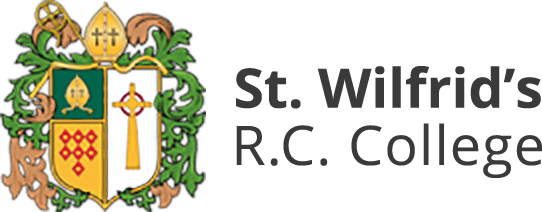Our curriculum intent is that every child becomes a musician. Through high quality teaching every child can fulfil their God given potential and develop a passion for music through their engagement and achievement. Our curriculum is broad, balanced and vibrant allowing students to develop the three core skills of performing, composing and appraising.
In Year 7, students build on the foundations of singing, group work and instrumental studies undertaken at Primary school. The focus is the consolidation of basic music theory skills as well as the understanding of rhythm and pitch notation through appraising, solo and group performance and composition tasks. In cycle 1 students learn the school hymns in lessons and then come together as a year group at the Year 7 Welcome mass to worship through music.
In Year 8 and 9 students explore a range of musical genres while continuing to develop the three core skills. Performance skills, both solo and ensemble are improved with expert tuition and focused practice on a range of instruments. Compositional skills underpinned by a secure knowledge of music theory with the support of music notation and production software enable students to produce their own original music in a chosen style. Appraising and listening skills are developed as students learn how to identify musical features and discuss the musical context using appropriate musical terminology. Students will complete Key Stage 3 with the necessary skill set required to succeed at GCSE Music, in performing, composing and appraising.
GCSE and A Level Music provides students with the means to harness their developing skills and knowledge in music. Personalised support from expert staff provides each student with the ideal environment to develop their individual interests and passions and prepare them for further study and music making.
Curriculum Intention:
- Perform confidently with fluency, accuracy and expression in a range of solo and ensemble contexts.
- Compose music by manipulating the musical elements and selecting, developing and refining musical ideas.
- Use musical notation as a tool to communicate musical ideas and intentions.
- Listen and analyse music using musical terminology and an awareness of context and genre.
- Produce high quality work that demonstrates the student is a musician.
Learning outside of the classroom
Our policy is that music homework provides students with the opportunity to consolidate, extend or further explore the music curriculum outside of lessons.
Homework frequency
Key Stage 3 students will receive homework once a fortnight.
Key Stage 4 students will receive weekly homework alongside the expectation that they practice their instrument 4-5 times per week.
Key Stage 5 students will receive 2-3 homework tasks alongside the expectation that they practice their instrument 4-5 times per week.
Extra-curricular programme
In addition to homework students are encouraged to participate in our extra-curricular programme to further develop their musical skills and knowledge. Currently we offer students the opportunity to join Junior Choir, Senior Choir and Orchestra. Students participating in these ensembles have the opportunity to perform in concerts, liturgies, assemblies and enjoy other educational music visits to see professional concerts and theatre productions.
We have visiting tutors providing lessons in violin, cello, double bass, flute, clarinet, saxophone, trumpet, trombone, tenor horn, drum kit, piano and singing. Many of these lessons are subsidised by the school to make learning an instrument affordable for all.
BCCET EYFS to KS2 Music Curriculum Narrative


